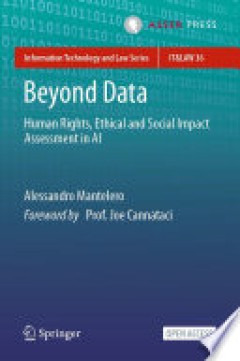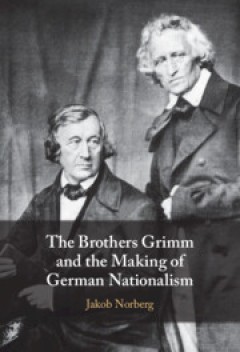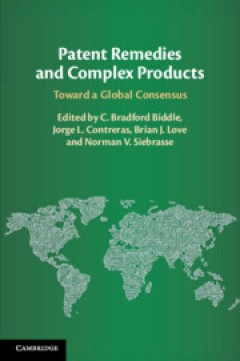Filter by

Harnessing public research for innovation in the 21st century: an internation…
Universities and public research institutes play a key role in the innovation ecosystem. Many countries have implemented national strategies to support the commercialization of knowledge produced by public institutions, to help take their innovations and scientific breakthroughs to market and ultimately boost economic growth. Research bodies themselves have also introduced practices to support …
- Edition
- -
- ISBN/ISSN
- 9781108842792
- Collation
- 544 p
- Series Title
- Intellectual property, innovation and economic development
- Call Number
- 607.2 ARU h

Beyond data : human rights, ethical and social impact assessment in AI
This open access book focuses on the impact of Artificial Intelligence (AI) on individuals and society from a legal perspective, providing a comprehensive risk-based methodological framework to address it. Building on the limitations of data protection in dealing with the challenges of AI, the author proposes an integrated approach to risk assessment that focuses on human rights and encompasses…
- Edition
- Ed. 1
- ISBN/ISSN
- 9789462655317
- Collation
- XXIII, 200
- Series Title
- -
- Call Number
- 343.0999 Man b

Academic brands : distinction in global higher education
The first comprehensive analysis of the emergence of academic brands, this book explores how the modern university is being transformed in an increasingly global economy of higher education where luxury is replacing access. More than just a sign of corporatization and privatization, academic brands provide a unique window on the university's concerns and struggles with conveying 'excellence' an…
- Edition
- -
- ISBN/ISSN
- 9781108881920
- Collation
- xiii, 220p. ; ill.
- Series Title
- -
- Call Number
- 378.101 ACA e

Cybersecurity in Poland
This open access book explores the legal aspects of cybersecurity in Poland. The authors are not limited to the framework created by the NCSA (National Cybersecurity System Act – this act was the first attempt to create a legal regulation of cybersecurity and, in addition, has implemented the provisions of the NIS Directive) but may discuss a number of other issues. The book presents internat…
- Edition
- -
- ISBN/ISSN
- 9783030785512
- Collation
- xvi; 513 PG; ill.
- Series Title
- -
- Call Number
- 343.099 CYB c

The Florida room
Alexandra T. Vazquez listens to the music and history of Miami to explore the city’s sonic cultures and its material and social realities.
- Edition
- 3
- ISBN/ISSN
- 9781478092704
- Collation
- xiii, 259p.; ill.
- Series Title
- -
- Call Number
- 780.9759381 FLO v

The responsibility of intellectuals : reflections by Noam Chomsky and others …
With the publication of ‘The Responsibility of Intellectuals’ half a century ago, Noam Chomsky burst onto the US political scene as a leading critic of the war in Vietnam. Privilege, he argues, brings with it the responsibility to tell the truth and expose lies, but our intellectual culture only pays lip-service to this ideal. The essay has been described as ‘the single most influential p…
- Edition
- -
- ISBN/ISSN
- 9781787355514
- Collation
- x, 138 p. ill;
- Series Title
- -
- Call Number
- 973.91 RES N

The Brothers Grimm and the Making of German Nationalism
In the first comprehensive English-language portrait of Jacob and Wilhelm Grimm as political thinkers and actors, Jakob Norberg reveals how history's two most famous folklorists envisioned the role of literary and linguistic scholars in defining national identity. Convinced of the political relevance of their folk tale collections and grammatical studies, the Brothers Grimm argued that they cou…
- Edition
- -
- ISBN/ISSN
- 9781009063890
- Collation
- viii, 268 p
- Series Title
- -
- Call Number
- 943.070922 BRO J

Patent Remedies and Complex Products : Toward a Global Consensus
Through a collaboration among twenty legal scholars from eleven countries in North America, Europe and Asia, Patent Remedies and Complex Products presents an international consensus on the use of patent remedies for complex products such as smartphones, computer networks and the Internet of Things. It covers the application of both monetary remedies like reasonable royalties, lost profits, and …
- Edition
- -
- ISBN/ISSN
- 9781108594981
- Collation
- xxvi, 380 p : ill
- Series Title
- -
- Call Number
- 346.0486 PAT C

Ancient knowledge networks : a social geography of cuneiform scholarship in f…
Ancient Knowledge Networks is a book about how knowledge travels, in minds and bodies as well as in writings. It explores the forms knowledge takes and the meanings it accrues, and how these meanings are shaped by the peoples who use it. Addressing the relationships between political power, family ties, religious commitments and literate scholarship in the ancient Middle East of the first mill…
- Edition
- -
- ISBN/ISSN
- 9781787355941
- Collation
- xxiii, 303 p. ill;
- Series Title
- -
- Call Number
- 935 ANC E

Medieval Hackers
Medieval Hackers calls attention to the use of certain vocabulary terms in the Middle Ages and today: commonness, openness, and freedom. Today we associate this language with computer hackers, some of whom believe that information, from literature to the code that makes up computer programs, should be much more accessible to the general public than it is. In the medieval past these same terms w…
- Edition
- -
- ISBN/ISSN
- 9780692352465
- Collation
- ScholarLed
- Series Title
- -
- Call Number
- -
 Computer Science, Information & General Works
Computer Science, Information & General Works  Philosophy & Psychology
Philosophy & Psychology  Religion
Religion  Social Sciences
Social Sciences  Language
Language  Pure Science
Pure Science  Applied Sciences
Applied Sciences  Art & Recreation
Art & Recreation  Literature
Literature  History & Geography
History & Geography